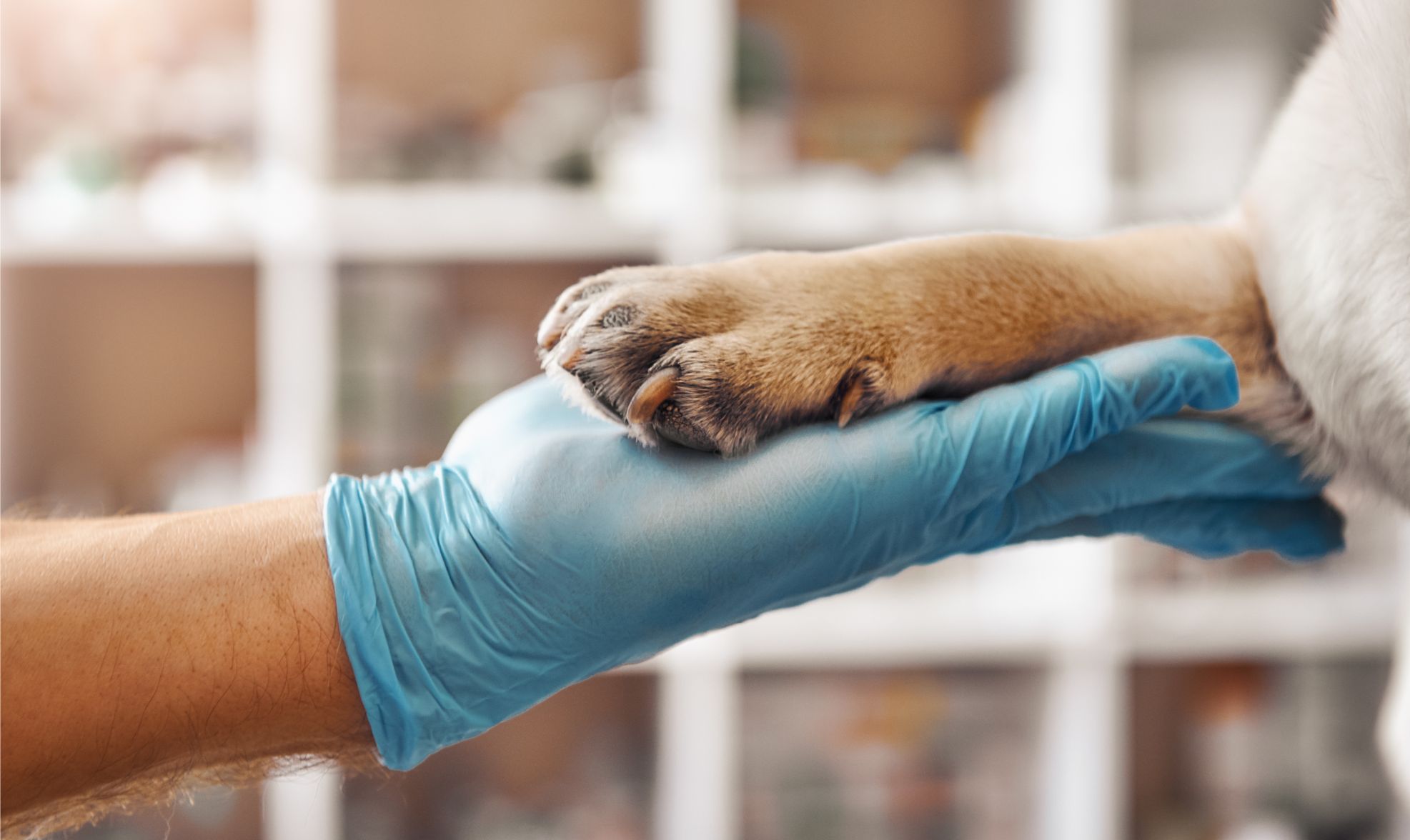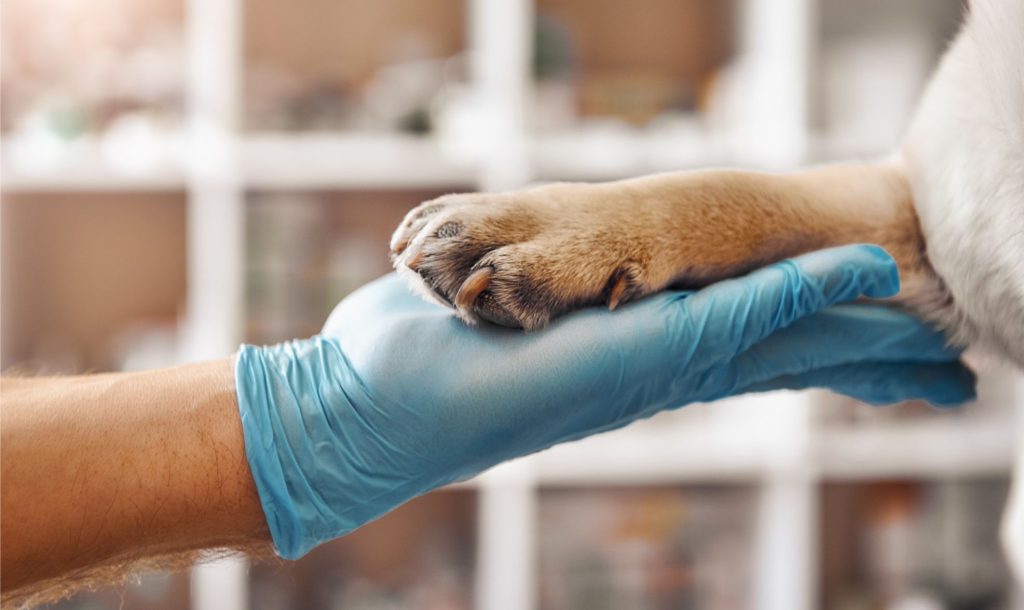What Does a Vet Tech Do on a Day-to-Day Basis?


Do you think you would like a career caring for animals? Have you thought about becoming a vet tech? Do you often wonder, “what does a vet tech do?”

According to the U.S. Bureau of Labor Statistics, the 2018 median salary for vet techs was $34,420 per year or $16.55 per hour across all those employed in the field. That means some vet techs earn more (they have been working as a vet tech longer, or work in an area with a higher cost of living), and some earn less (vet techs just starting out or those that work in rural areas.) The report also states that there were about 109,400 vet techs in 2018. They predict that there will be 19% more jobs available by 2028. That’s more than 20,000 new vet tech positions in the U.S.
Are you even more excited now? Continue reading to learn more about the vet tech career.
What Is a Vet Tech?
A veterinary technician’s job is to assist veterinarians in procedures and tasks. You may work in a clinic, veterinary hospital, laboratory, or at a large animal facility.
An important part of the vet tech’s role involves working with pet owners and animal care providers. You will teach them about how to provide the care ordered by the veterinarian. The vet tech is also instrumental in keeping the area clean and safe for animals and humans.
It is important to exemplify excellent customer service. Your actions impact the pet owner’s impression of the entire facility.
As a vet tech, you may have the opportunity to work with more than cats and dogs. Some patient populations include birds, large animals, hamsters, rabbits, and more.
How to Become a Vet Tech
The first step to becoming a vet tech is to select an accredited trade school. Look for programs with the following accreditations:
- Accreditation Bureau of Health Education Schools (ABHES)
- Committee on Veterinary Technician Education and Activities (CVTEA)
Upon completion of an accredited program, most states allow you to take the Veterinary Technician National Exam.
Vet tech training programs commonly involve the following general course work:
- Introductions to animal nursing care
- Training in animal anesthesia
- Biochemistry
- Animal anatomy and physiology
- Surgical nursing care for animals
- Animal diseases
- Animal pathophysiology
- Animal pharmaceutical training
You may also need to take general core curriculum courses for the associate degree. This may include math, English and language arts, history, and science courses.
If some of the courses listed above seem intimidating or difficult, don’t worry. You are in the same boat as other new students and the courses are designed to provide you with the knowledge and training you need to succeed. Your instructors can help you if you get stuck on a particular topic.
Credentialing Process
Each state determines how it will regulate vet techs. Today, most states require completion of a credentialing exam. The Veterinary Technician National Exam (VTNE) is a common test used by many states.
The VTNE includes 200 multiple-choice questions and takes four hours to complete. This exam addresses seven major knowledge areas to determine proficiency. These areas include:
- Pharmacy and pharmacology
- Preparing and assisting with surgery
- Dental procedures
- Laboratory procedures
- Nursing care for animals
- Radiography, ultrasound, and other diagnostic tests
- Anesthesia
Contact your state board of health to learn about your state’s specific requirements.
Vet Tech Specialization
Today, there are many specializations available to vet techs. You must complete the initial qualifications and gain work experience as a vet tech, first. Then, by completing further course work, you can enter a variety of specializations.
Some examples include:
- Veterinary nutrition techs assist with managing animals’ diet and nutrition
- Veterinary dental techs perform dental procedures, care, and cleanings under the supervision of the veterinarian
- Veterinary surgical techs assist veterinarians with surgery and provide pre- and post-op care
- Veterinary behavior techs observe animal behavior and work to correct undesirable behavioral problems
- Clinical pathology vet techs examine animal body fluids to assist in the diagnosis
- Emergency and critical care vet techs assist in providing care to critically ill and injured animals
- Equine vet techs work specifically with equine veterinarians and often travel to ranches to provide care (horses)
Another path you may choose is to become a veterinary technologist. This specialty often involves working in many different areas such as:
- Wildlife facilities
- Biomedical facilities
- Diagnostic labs
- Food safety inspection facilities
- Animal food and drug manufacturing facilities
What Does a Vet Tech Do?
The daily tasks of a vet tech can vary based upon specialty and type of practice, including working indoors or outdoors, on a farm or at a zoo, in a clinic or traveling.
Day-to-day tasks also change based on the animals scheduled to be seen that day. As a vet tech, you will work with the veterinarian, office staff, and pet owners. People and animal skills are a must, including compassion and empathy.
The following are some examples of tasks vet techs perform on a routine basis.
Assisting the Veterinarian
Veterinarians often need trained hands to help them during various procedures. This may range from restraining an animal during an exam to assisting in surgery.
Vital Sign Monitoring
Assessing the animals’ vital signs is often part of a routine vet checkup. This task may also be important in critically ill or injured animals. Also, vital sign monitoring must continue during all procedures involving anesthesia.
Obtaining Samples for Testing
Routine vet checkups also involve testing of the blood and stool. It is often the vet tech’s responsibility to obtain these samples. If a urinary tract issue is suspected, you may collect a urine sample.
Serial testing is often useful for determining treatment response. You may obtain these tests on a scheduled basis to assist with treatment plans.
Complete Sample Testing
The vet tech is often required to perform tests on blood, stool, and other samples. This may involve using testing kits or more complex testing machinery.
Performing Radiologic Testing
Depending on the facility where you work and the equipment available, you may perform many different diagnostic radiologic tests. This may include X-rays, ultrasounds, or magnetic resonance imaging (MRI). This serves an important role in the diagnostic process.
Surgery Prep
Vet techs prepare animals for surgical procedures. This may involve telling the pet owner to keep the animal from eating or drinking for a certain amount of time. You may also relay instructions to give or hold medications before the surgery.
You will watch the animal before the surgery, especially if they received a sedative. When it is time for the surgery, you may prep the animal by cleaning, shaving, and draping the area.
Surgical assisting involves gathering the instruments needed for the procedure. During the surgery, you may hand the veterinarian surgical instruments, suction, or retract tissue as needed.
After the procedure, vet techs monitor the animal as they wake from the anesthesia. You will notify the veterinarian if any complications develop.
Administering Anesthesia
Vet techs often administer anesthesia under the supervision of the veterinarian. This may involve giving the sedation and monitoring the animal throughout the procedure. After the surgery, you will ensure that the animal wakes without complications.
Perform Dental Procedures
Vet techs may perform certain dental procedures (not surgeries) under the supervision of the veterinarian.
Depending on the state’s regulations, vet techs may perform the following dental procedures:
- Supragingival scaling and teeth polishing
- Obtaining and developing dental X-rays
- Making dental impressions
- Creating dental models
- Documenting dental pathology
- Equine teeth floating
It is important to know your state’s rules and when you must be supervised by the veterinarian.
Emergency First Aid
You may perform initial emergency first aid on animals brought into your facility. You will then work with the veterinarian during further treatment needs.
Administration of Medications and Treatments
You will follow orders given by the veterinarian. This may include giving medications or vaccines to animals. You also perform treatments as prescribed.
The Work Setting
Depending on the type of setting you work within, your duties may focus on specific areas. For example, if you choose to work for a small private practice, your duties may include helping family pets. Most of your time involves assisting the veterinarian and working with pet owners.
If you work in a research laboratory, you may spend more time collecting samples for testing. You may also focus on performing tests and compiling test results. The work environment may include scientists as well as veterinarians.
Do You Want to Work With Animals?
Is your dream to work in an environment surrounded by animals and people who love them? Now that you know the answer to, “what does a vet tech do,” is your interest piqued? You can be part of a team working to maintain the health of our animal friends.
The Institute of Medical and Business Careers (IMBC) has institutional accreditation by the ABHES. Our school has also received accreditation from CVTEA.
IMBC offers an Associate Degree in Specialized Technology (A.S.T.). We offer day and evening on-campus courses in Erie, PA. The program takes about one-and-a-half years to complete.
If you are not afraid of a little animal fur or feathers on your scrubs, this may be the career for you. Contact us today to ask questions and enroll to be part of our next vet tech class.
Recent Posts
Different Types of Welding
Fun fact: over half of all man-made products require some form of welding at some…
What Are ICD-11 Codes?
The modern healthcare industry relies on meticulous records of patient conditions and treatments. To simplify…
What is the NRCPT Exam for Phlebotomy?
If you’re interested in a career in healthcare, specifically in phlebotomy, you might have encountered…
Job Duties in a Medical Assisting Internship
If you are looking for a stable career opportunity where you get to make a…
What Does a Veterinary Technician Do?
Veterinary technicians are professionals who specialize in animal healthcare under the supervision of a veterinarian.…
How Long Does it Take to Become a Paralegal?
What’s holding you back from starting more stable, lucrative, and fulfilling career? Sometimes people hesitate…


